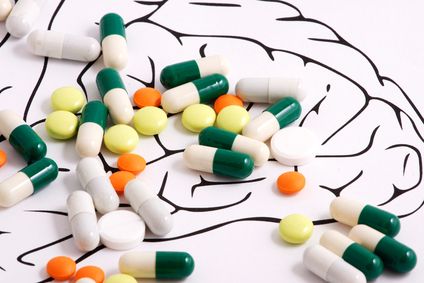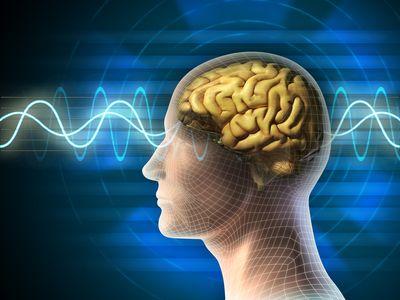Advancements in Alzheimer’s Disease Research: Progress and Potential Treatments
Learn about the latest developments in Alzheimer's disease research, including the causes and potential treatments for the debilitating cognitive disorder. Stay informed with the latest findings from leading scientists and medical professionals.

Alzheimer's disease is a progressive neurological disorder that affects millions of people worldwide. With an increasing number of diagnoses, researchers have delved into the complexities of the human brain to uncover the underlying mechanisms of the disease. This article explores the key features of Alzheimer's, the latest breakthroughs in research, and potential treatment approaches that offer hope for a brighter future.
Understanding Alzheimer's Disease: The Science behind the Disease
Alzheimer's disease is characterized by several distinct hallmarks in patients:
Neurofibrillary Tangles and Amyloid Plaques: These microscopic tangles and plaques in the brain impair its functioning. The accumulation of beta-amyloid peptide proteins in the form of plaques and "tau" proteins in tangles disrupts the stability of microtubules, essential for normal cognitive functioning.
Disconnection between Brain Cells:Tangles and plaques cause neurons to lose their connections, leading to impaired communication via synapses and severely compromised thought processes.
Shrunken and Inflamed Brain Tissues: Alzheimer's patients experience a reduction in brain tissue volume, while ventricles containing cerebrospinal fluid expand, exerting pressure on various brain regions.
Disease Progression: Individuals with plaques but no tangles exhibit a slower rate of disease progression, while those with tangles but no plaques decline faster, often developing frontotemporal dementia.
The Groundbreaking Research:
In July 2012, The New England Journal of Medicine published a groundbreaking study by scientists from Washington University School of Medicine in St. Louis, Missouri. The study focused on individuals genetically predisposed to Alzheimer's, detecting pre-symptomatic dementia symptoms up to 30 years before memory loss occurs. One of the early signs identified was an increase in tau proteins in the spinal fluid, a potential biomarker for the onset of Alzheimer's.
Researchers also discovered that brain scans taken 15 years before memory problems manifested clearly showed the presence of plaques. This finding paves the way for potential interventions aimed at blocking plaque growth or removing existing plaques to halt disease progression.
Moreover, a decrease in glucose utilization by the brain and shrinkage of vital brain structures have been observed nearly two decades before dementia symptoms appear, reinforcing the notion that Alzheimer's begins eroding the brain long before cognitive decline becomes evident.

New Treatment Approaches:
Recent studies offer hope for new treatment approaches that could change the landscape of Alzheimer's research.
Protein Structure-Based Medications: Research in Science magazine (June 2012) revealed that understanding the molecular structure of proteins, particularly the amyloid precursor protein, could lead to the development of more effective medications. By reducing the production of amyloid-beta, the primary cause of plaques, scientists aim to prevent cholesterol from binding to the protein and potentially inhibit amyloid-beta generation.
Deep Brain Stimulation: John Hopkins Medicine has reported encouraging results in patients with early-stage dementia using continuous electrical impulses delivered through a brain-implanted device. This treatment, previously beneficial for depression and Parkinson's, has shown promise for Alzheimer's patients by increasing neuronal activity associated with memory.

Metformin for Neuron Formation: A study published in Cell Stem Cell explored the use of Metformin, a drug commonly used to control blood glucose levels in diabetics. The drug appears to stimulate the formation of new neurons and holds potential for replenishing neurons devastated by tangles and plaques. However, careful consideration of potential side effects, particularly for individuals with certain health conditions, is crucial.
“You spend your life hoarding memories against the day you'll lack the energy to go out and make new ones, because that's the comfort of the old age. The ability to look back at your life and know that you left your mark on the world. But I'm losing my memories, it's like someone's broken into my piggy bank and is robbing me one penny at a time. It's happening so slowly, I can hardly tell what's missing.”
― Shaun David Hutchinson
Conclusion:
Alzheimer's disease research has made significant strides in understanding the disease's underlying mechanisms and identifying potential treatment options. From uncovering early biomarkers to exploring new medications and treatment modalities, the future of Alzheimer's research is indeed promising. Collaborative efforts from doctors, geneticists, neurologists, and pathologists continue to propel us closer to preventing, slowing, and potentially curing this devastating neurological disorder. As we strive to improve the lives of those affected by Alzheimer's, hope remains that within the next 25 years, we may witness a breakthrough that leads to a cure.
Our Resource section can help you find the information and tools that you need. We have courses, videos, checklists, guidebooks, cheat sheets, how-to guides and more.
You can get started by clicking on the link below. We know that taking care of a loved one is hard work, but with our help you can get the support that you need.
Click here to go to Resource Section now!



